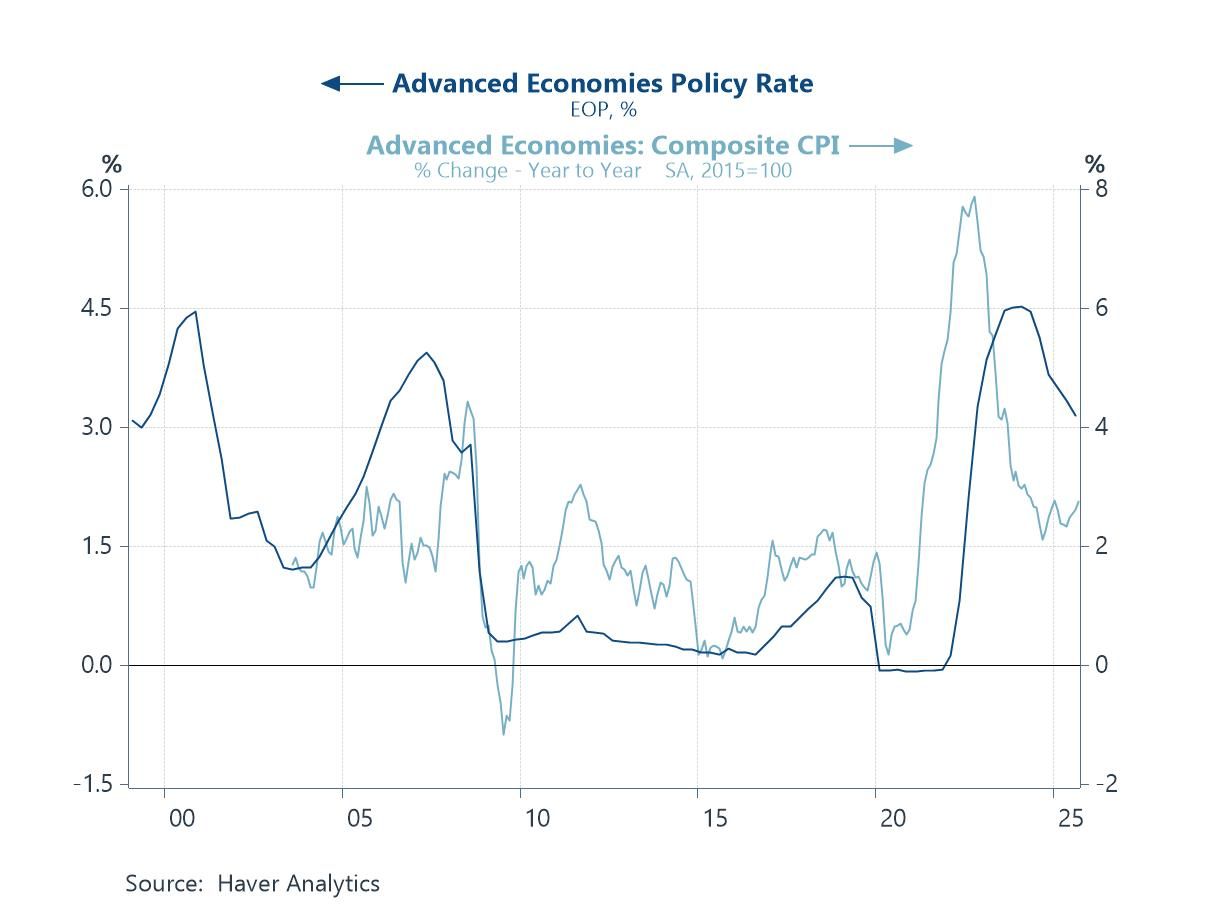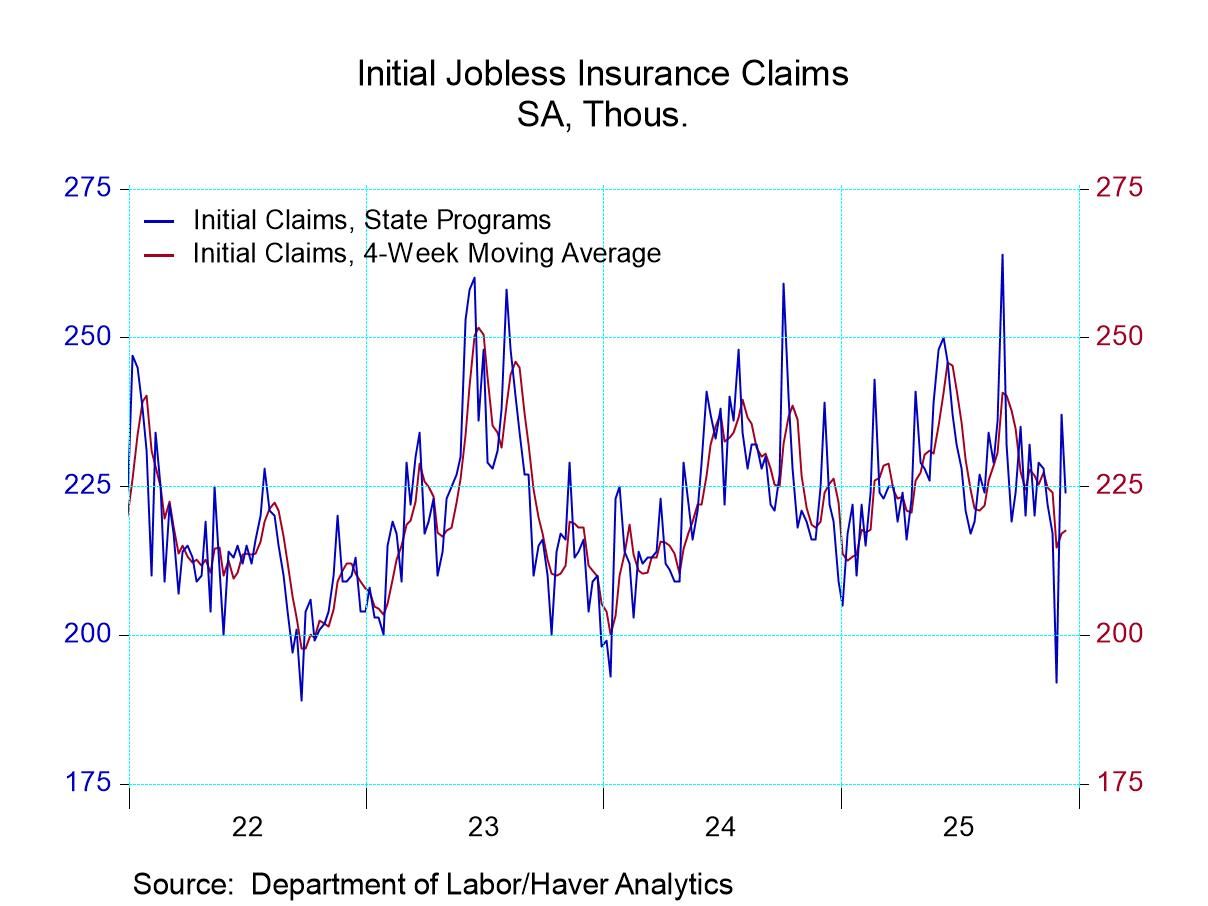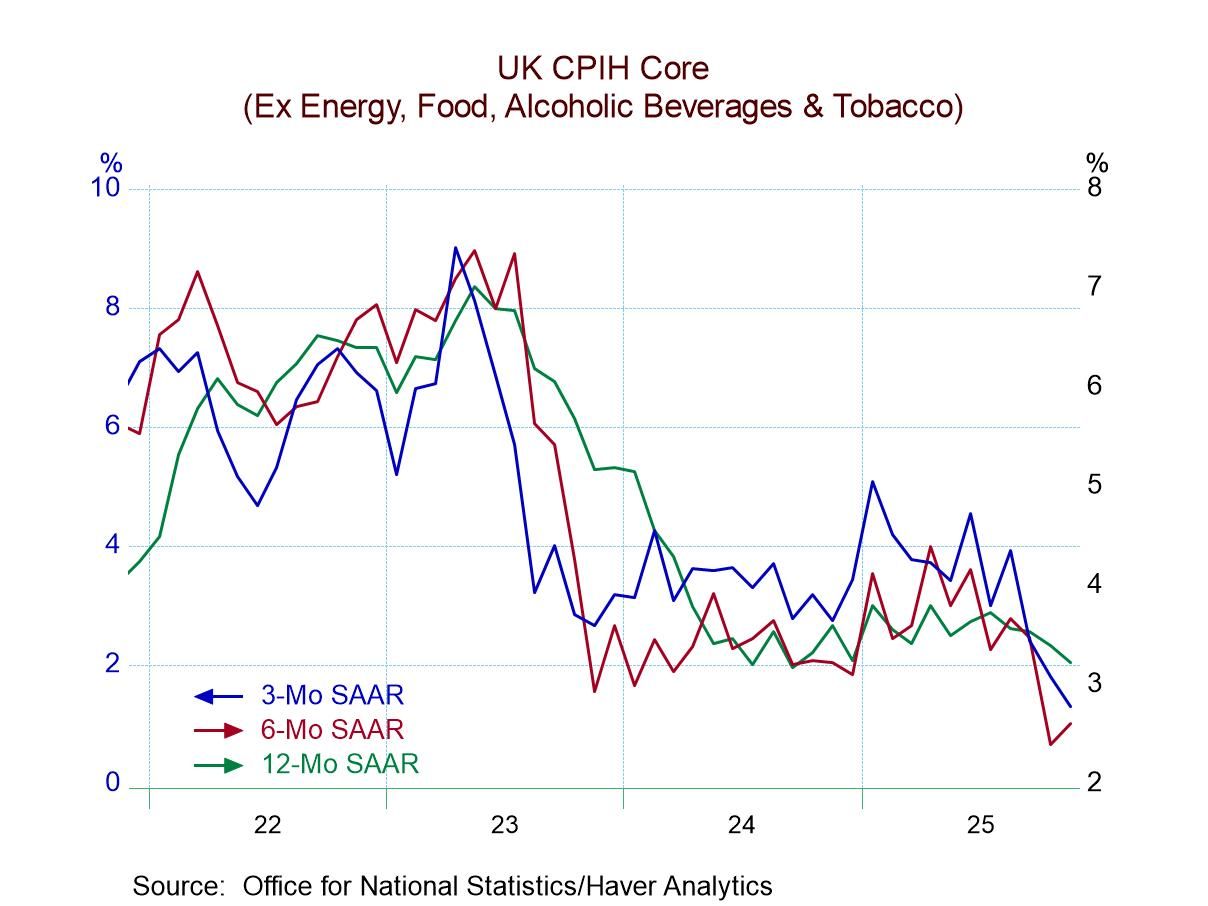 Global| Dec 01 2008
Global| Dec 01 2008U.S. Recession: It's Official
by:Tom Moeller
|in:Economy in Brief
Summary
The Business Cycle Dating Committee at the National Bureau of Economic Research (NBER) determined that a U.S. recession is underway and that it began following a December 2007 peak. The dating of a recession is dependent on several [...]
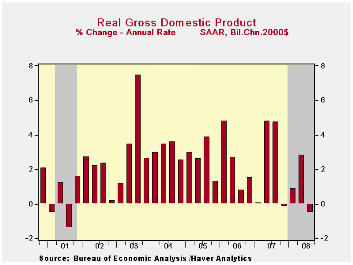
The Business Cycle Dating Committee at the National Bureau of Economic Research (NBER) determined that a U.S. recession is underway and that it began following a December 2007 peak.
The dating of a recession is dependent on several coincident indicators of U.S. economic activity including production, private sector employment and real income (less transfers). Of those variables, industrial production has fallen 4.5% since its peak, employment has fallen 1.2% and real income has dropped 0.8%. In addition real personal consumption expenditures have fallen 1.3%, corporate profits are down 5.7% and construction activity is off 1.9%.
Real GDP during the last three quarters rose a very modest 0.8%, well below the economy's growth potential. Moreover, the 2008 gain likely will be eliminated by a report of what many expect will be a 4% to 5% (AR) decline in 4Q activity. Without the non-cyclical government sector, real GDP grew just 0.4% during the last three quarters.
By comparison, the largest of the postwar recessions occurred from 1957-58 and 1973-75 when real GDP fell roughly 3.1%, and from 1981-82 when real GDP fell 2.6%. More moderate declines in activity occurred during the 1960-61 and 1970 recessions when real GDP fell less than 1%. The last recession happened in 2001 when real GDP fell 0.2% peak-to-trough.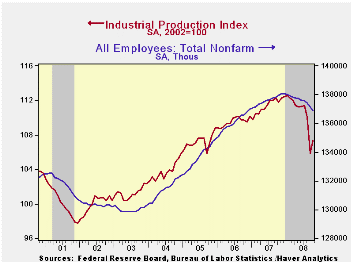
Today's announcement from the NBER can be found here.
For the dates of past economic peaks and troughs, as determined by the NBER, can be found here.
Federal Reserve Policies in the Financial Crisis is yesterday's speech by Fed Chairman Ben S. Bernanke and it can be found here.
Tom Moeller
AuthorMore in Author Profile »Prior to joining Haver Analytics in 2000, Mr. Moeller worked as the Economist at Chancellor Capital Management from 1985 to 1999. There, he developed comprehensive economic forecasts and interpreted economic data for equity and fixed income portfolio managers. Also at Chancellor, Mr. Moeller worked as an equity analyst and was responsible for researching and rating companies in the economically sensitive automobile and housing industries for investment in Chancellor’s equity portfolio. Prior to joining Chancellor, Mr. Moeller was an Economist at Citibank from 1979 to 1984. He also analyzed pricing behavior in the metals industry for the Council on Wage and Price Stability in Washington, D.C. In 1999, Mr. Moeller received the award for most accurate forecast from the Forecasters' Club of New York. From 1990 to 1992 he was President of the New York Association for Business Economists. Mr. Moeller earned an M.B.A. in Finance from Fordham University, where he graduated in 1987. He holds a Bachelor of Arts in Economics from George Washington University.



